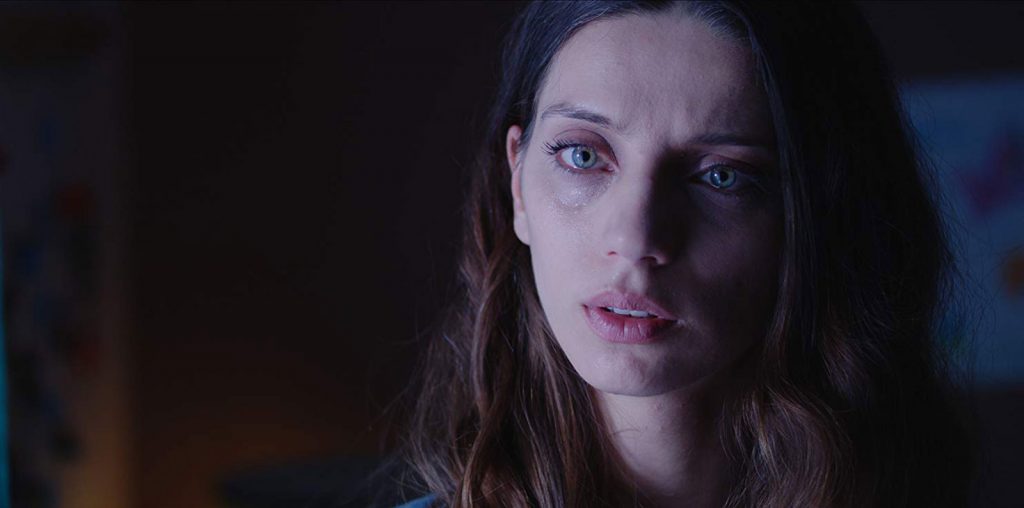
“Letting Life In”, a shameless title for a shameless weepie of a film. To be honest, it’s not really my kind of thing. In fact, it’s the exact opposite of “my kind of thing”. Though as an objective critic I will give it my objective best (from somewhere I hear the words of that famous critic with the overactive thumb, “the job of the critic is not to be objective, but to be subjective”, well whatever). Forget the fact that I knew the whole story only 10 minutes in. Forget the fact that I’ve seen the same film with much sexier Hollywood actors and higher production values and STILL HATED IT. Forget the fact that the main characters have insufferably dull names like ‘Michael Jones’ and ‘Sarah Roberts’ and say things like “if you reach out to me, I’ll take hold and I won’t let go”. Forget all these things; chalk them up to personal tastes. Okay, that aside, we can now be objective: “Letting Life In”, written and directed by Steven James Creazzo, is less like a film than a glorified, two-person stage play about that oh so quaint notion of opening up and living life to the fullest. As I said before, it’s definitely shameless but as far as this breed of film goes, at least it’s honest about tugging on your heartstrings. And yes, we do have a heart, it just takes a lot more than cheap sentimentality to tug their so-called strings.
The aforementioned, dully-named Michael Jones, played by a game Patrick Hall, is a novelist whose been struggling for years to live up to the promise of his acclaimed first novel. It’s not like Michael’s had many distractions, you see, he hasn’t left the house in 16 years! Needless to say, Michael’s agoraphobic: deathly afraid of people, change, the outside world… pretty much anything different. Enter 24-year old Sarah Roberts (the lovely Anne W. Griffin), the polar opposite of Michael: she’s adventurous, outgoing, and craves change (the life-affecting kind). Against Michael’s wishes, Sarah was hired by his late mother to be his personal assistant. Fortunately for Sarah, the cross-country trek from California to upstate New York offered her a chance to escape her “mysterious problems” back home and find the freedom she’s always desired. At first, Michael is resistant to the prospect of a stranger in the house. But sure enough, he slowly begins to open up and experience new things, such as horseback riding, all at Sarah’s urging. He ventures out of the house for the first time in years, he finally starts writing again, he even finds love. Just when their lives have reached a state of utter bliss, Sarah’s troubled past begins to catch up with her, as it always does in these movies. That’s right, Creazzo willfully employs that trustiest of plot devices, IRONY, like it was nobody’s business! Good for him! Bad for us.
I would be much more forgiving of “Letting Life In”, in fact I want to be more forgiving, it’s just that the film is so joylessly methodical about following its dead-in-the-water formula that it leaves an objective critic no choice. This is like a textbook example of The Weepie, with character “types” (as opposed to characters) spouting out greeting-card dialogue unlike that which any self-respecting real person would ever say. (Insert comment about incessantly treacly soundtrack.) (Insert comment about clinically sophomoric use of symbolism: horses = freedom, house = the past, etc.) Remember though, we do have a heart: both Hall and Griffin do a decent enough job with the uninspired material they’re given. Ms. Griffin, in particular, is naturally likable and perfect in this role. Anyway, speaking of “Life”, it’s just too short. 2 stars for two stars.
